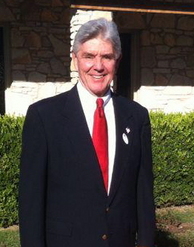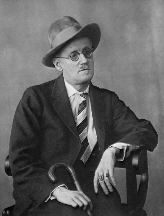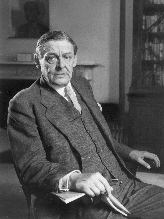The Literary Namesakes of US Congressmen
One of your ancestors might have been represented by James Joyce, John Milton, Thomas Eliot, or John Dryden on Capitol Hill

Their name.
Nearly 400 years ago, London-born Roger Williams came to America, founded a colony in Providence, Rhode Island and wrote a number of books including A Key into the Language of America (1643).
But Representative Williams is not the only current member of the House with such ‘ties’ to literary figures of yore.
In fact, he’s not even the only one from Texas.
Samuel (“Sam”) Johnson is one of the oldest members of the 113th Congress and has represented the Lone State State’s 3rd Congressional District for 12 terms dating back to 1991.
The influential English writer Dr. Samuel Johnson died 146 years before Rep. Johnson was born in 1930, but left behind a legacy of writings including A Dictionary of the English Language (1755) and the poem The Vanity of Human Wishes (1749).
American writer James (Fenimore) Cooper authored the 19th Century masterpiece The Last of the Mohicans (1826) while Democrat James (“Jim”) Cooper has represented Tennessee’s 4th and 5th Districts over 12 terms in Congress in two stints since 1983.
Overlapping the author’s own life span was Whig James Cooper of Pennsylvania, who served in the lower (1839-1843) and upper (1849-1855) legislative chambers in D.C.
Meanwhile, although Democrat Adam Smith of Washington is in his ninth term as U.S. Representative from the state’s 9th CD, he still lives in the shadow of his literary namesake – Adam Smith of 18th Century Scotland.
The latter Adam Smith was of course the author of the widely read economic treatise The Wealth of Nations (1776).
While the namesakes of Representatives Williams, Johnson, Cooper, and Smith can hold their own, several former members of Congress can be paired with even more famous literary figures.
For example, Arthur Miller, wasn’t simply a great American playwright.
When the allegorical The Crucible opened in 1953, Republican Arthur Miller of Nebraska was in the midst of an eight-term run in the U.S. House (1943-1959).

The latter Joyce represented Ohio’s 15th CD for two years from 1909-1911.
Englishman John Milton saw the publication of Paradise Lost in 1667, and the epic poem still is well known to this day.
By contrast, New Jersey Democrat John Milton served only 294 days in the U.S. Senate after being appointed in 1938 and then resumed his law practice and remained out of elected office (and public consciousness) for the rest of his life.
Another famous 17th Century English poet and playwright, John Dryden (Absalom and Achitophel), has a namesake in the Senate from the state of New Jersey: Republican John Dryden was elected to the chamber in 1902 and served for five years.
Turning from England to Scotland, and from the 17th to 18th Centuries, we find Robert Burns (“Auld Lang Syne”) – the most famous poet in Scottish history.
Not so famous was Robert Burns of New Hampshire who served just two terms in the U.S. House from 1833 to 1837 as a Jacksonian representing the state’s 2nd Congressional District.

Meanwhile, the U.S. Congress brought us two Thomas Eliots – and both from Massachusetts: the former was a Whig and Republican who served six terms in the U.S. House from the state’s 1st CD in the 1850s and 1860s and the latter served one term in the House from the state’s 9th CD from 1941 to 1943.
The Midwest gave birth to two William Staffords – both of whom rose to some prominence in their respective careers.
One, from Kansas, became the nation’s 20th Poet Laureate from 1970 to 1971.
The other, from Wisconsin, served 10 non-consecutive terms in the U.S. House from the Badger State’s 5th CD in Milwaukee.
Stafford frequently dueled at the ballot box with Socialist Victor Berger with the former getting elected in 1902, 1904, 1906, 1908, 1912, 1914, 1916, 1920, 1928, and 1930 and losing in the primary or general election in 1910, 1918, 1922, 1926, and 1932.
Other notable literary/political namesakes include:
· Stephen Crane: 19th Century American novelist (The Red Badge of Courage, 1895) vs. the Continental Congress member from New Jersey (1774-1776).
· William Bradford: Plymouth Colony governor and writer (Of Plymouth Plantation) vs. the U.S. Senator from Rhode Island (1793-1799).
· Thomas Browne: 17th Century English writer (Religio medici) vs. two Republican members of the U.S. House of the same name from Indiana (1877-1891) and Virginia (1887-1891).
(Note: Firebrand Republican U.S. Representative Steven “Steve” King of Iowa doesn’t quite make the cut above as the prolific horror author spells his first name “Stephen”).
Follow Smart Politics on Twitter.
